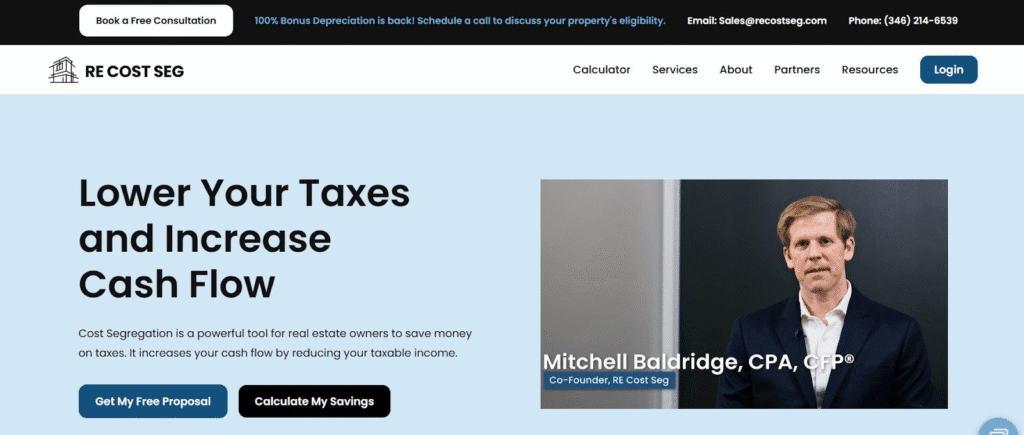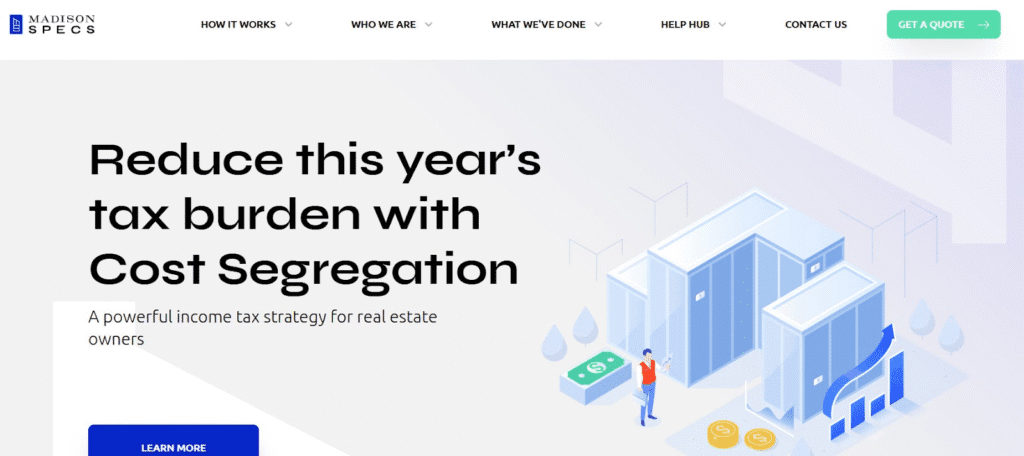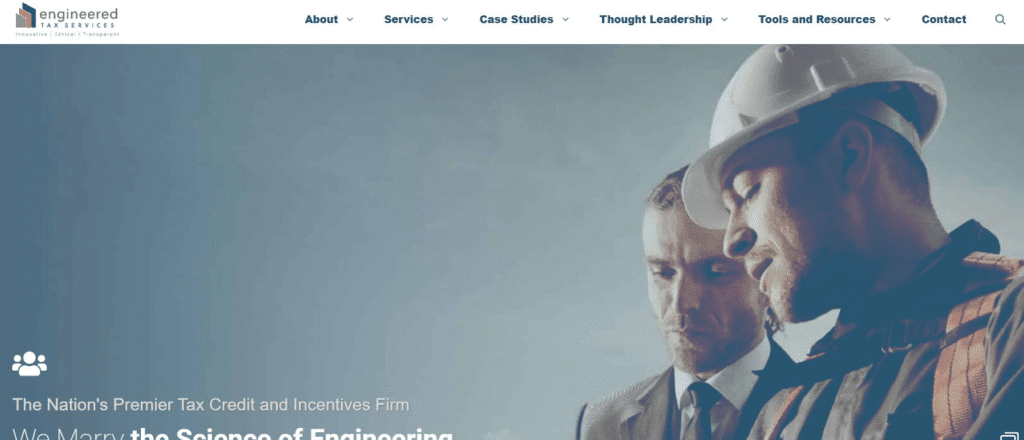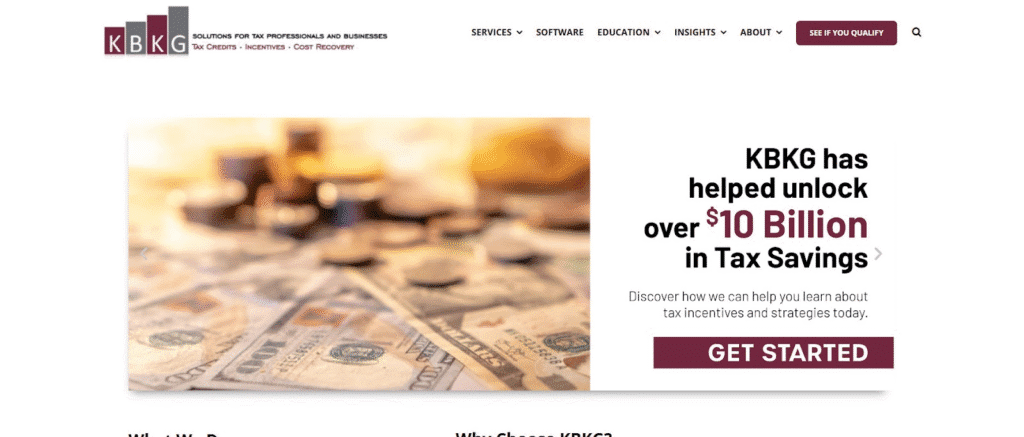Cost segregation can be a powerful tax strategy for real estate investors, but in New York, it’s anything but straightforward. Between overlapping regulations, aging building stock, landmark protections, and state-specific depreciation rules, applying a one-size-fits-all methodology can lead to costly mistakes.
Unlike other markets, New York demands more than just engineering knowledge. A qualified provider must also understand how local tax codes, zoning nuances, and audit practices affect asset classification and accelerated depreciation. When cost segregation studies overlook these factors, investors risk triggering audits, losing deductions, or facing compliance penalties.
Working with the wrong firm doesn’t just reduce the value of the study, it introduces liability. The best cost segregation companies for New York investors pair national-level technical expertise with region-specific insight, delivering tax savings that are both optimized and defensible.
This guide highlights six firms that meet those standards, combining strategic tax positioning with the rigor and accuracy required in one of the country’s most complex property environments.
Quick Picks: Top 3 Cost Segregation Companies in New York
- RE Cost Seg: Best for Comprehensive Tax Savings
- In-depth engineering + tax team
- Fixed pricing with audit support
- Strong performance with NY multifamily, retail, and office
- Madison SPECS: Best for Real Estate Investors
- Deep Northeast market experience
- Ideal for 1031 and refinance timing
- 16,000+ studies completed
- Engineered Tax Services: Best for Specialty Properties
- Known for hospitality and healthcare assets
- Offers energy + green tax incentive pairing
- Engineering-led documentation for complex portfolios
These three firms offer distinct strengths for different investor profiles. Keep reading for full reviews, including four more New York-capable firms.
Key Criteria for Choosing a Cost Seg Provider in New York
1. Experience With New York Property Types
New York’s property landscape is complex, with everything from landmarked brownstones to mixed-use towers. Local experience ensures studies capture all eligible assets and reflect New York-specific tax dynamics. Look for providers who:
- Have a track record with New York multifamily, commercial, and mixed-use assets
- Understand retrofit-heavy buildings and historic structure considerations
- Know how zoning or landmark status can affect component classification
2. IRS and State Audit Support
New York investors face scrutiny at both the federal and state level. A good cost seg study isn’t just aggressive; it’s defensible. Seek firms that:
- Include audit defense in their service, not as an extra charge
- Prepare studies with full documentation aligned to IRS cost seg audit technique guidelines
- Know how to respond to inquiries from the New York State Department of Taxation and Finance
3. Engineering and Construction Expertise
The most valuable deductions are buried in the details of electrical, plumbing, HVAC, and finishes. Only engineers can properly identify and reclassify them. Prioritize firms that:
- Employ in-house engineers (not just subcontracted analysts)
- Conduct in-person or virtual property walkthroughs
- Document buildout and tenant improvement components correctly
4. Industry-Specific Capabilities
Property type matters. Hotels, outpatient clinics, retail spaces, and office buildings all have different depreciation opportunities. Choose firms that:
- Have experience across your specific asset class
- Can share real case studies from similar NY properties
- Understand sector-specific assets like FF&E, clean rooms, or food service areas
5. Transparent and Predictable Pricing
Many firms still charge a percentage of estimated tax savings. That misaligns incentives and can create unexpected fees. Look for:
- Flat-fee pricing based on scope and property type
- Upfront pricing proposals with no surprise add-ons
- Clear documentation of what’s included: site visit, audit defense, revisions, etc.
6. Turnaround Time Without Sacrificing Quality
Deadlines matter, especially when a study is needed before filing, refinancing, or transaction close. Look for teams that:
- Offer a clear project timeline with firm milestones
- Have resources to scale up for urgent filings
- Don’t skip critical steps: engineering review, documentation, and reconciliation
7. Integration With Broader Tax Strategy
The best studies support more than one objective. In New York, cost segregation is often tied to 1031 exchanges, recapitalizations, or estate planning. Strong providers will:
- Work with your CPA or tax team directly
- Time the study to support financing, sale, or carryback strategy
- Explain how the depreciation will flow through your entity structure
The 6 Best Cost Segregation Companies in New York
1. RE Cost Seg: Best for Comprehensive Tax Savings

- Founded: 2022
- Headquarters: Houston, Texas
RE Cost Seg stands out for its integration of engineering precision with an aggressive yet defensible tax strategy. The firm brings fixed pricing, audit defense, and a consultative process that’s highly effective in complex markets like New York.
Investors routinely turn to RE Cost Seg for studies tied to multifamily, office, retail, and repositioned mixed-use buildings. Their team works closely with CPAs to align study timing with broader goals, such as refinancing, 1031 exchanges, or NOL carrybacks.
In a market where many firms rely on templates and speed, RE Cost Seg’s deep site-level documentation and NY-specific tax alignment make them the most strategically sound choice.
2. Madison SPECS: Best for Real Estate Investors

- Founded: 2004
- Headquarters: Lakewood, New Jersey
Madison SPECS is a strong fit for active real estate investors in New York, particularly those managing multifamily and mixed-use portfolios. With over 16,000 studies completed, the firm has a deep understanding of how depreciation strategies intersect with cash flow management, refinancing, and exchange timing.
Madison is also known for its Northeast market familiarity, which makes a difference in older or highly regulated properties. Their team takes a hands-on approach, coordinating directly with investor tax teams to structure studies that go beyond compliance and actively support long-term asset strategies.
3. Engineered Tax Services: Best for Specialty Properties

- Founded: 2001
- Headquarters: West Palm Beach, Florida
Engineered Tax Services (ETS) brings a highly specialized approach to properties with complex layouts or use cases. In New York, they’re especially respected for their work on hotels, healthcare facilities, and historic buildings. Their strength lies in pairing traditional cost segregation with other federal and state-level incentives, such as energy credits and green building deductions.
ETS uses in-house engineers to document building systems in detail, which is crucial for qualifying improvements like chilled water systems, specialty lighting, or advanced HVAC. For investors with nuanced assets, ETS delivers both depth and optional layering of tax strategies.
4. CohnReznick: Best for Large-Scale Projects

- Founded: 1919
- Headquarters: New York, New York
CohnReznick is one of the largest accounting and advisory firms in the country, with deep experience across the tri-state area. Their cost segregation practice is part of a broader tax platform, which makes them well-suited to institutional investors and developers handling large or multi-phase projects. They bring a high level of coordination across tax planning, compliance, and financial modeling.
While not the fastest or lowest-cost provider, CohnReznick’s integration and scale make them ideal for office towers, industrial facilities, or institutional-grade portfolios where audit alignment and strategic tax modeling are non-negotiable.
5. KBKG: Best for Technical Rigor

- Founded: 1999
- Headquarters: Pasadena, California
KBKG is a technically advanced firm with a national presence and a reputation for highly detailed, defensible studies. Their New York engagements typically involve commercial and healthcare assets, where engineering and accounting teams must coordinate around complex buildouts.
KBKG also offers a suite of complementary services, such as R&D credit analysis and repair vs. capitalization studies, which makes them a good choice for larger operators seeking integrated tax engineering. Their team includes former IRS agents and Big Four professionals, which contributes to strong audit readiness and interdepartmental support.
6. CSSI: Cost Segregation Services: Best for Multi-State Portfolios

- Founded: 2000
- Headquarters: Baton Rouge, Louisiana
CSSI is a national cost segregation firm with more than 30,000 studies completed. While they aren’t based in New York, their process-driven model has proven effective for investors with assets in multiple states. In New York, they’ve supported retail centers, logistics warehouses, and light industrial facilities.
CSSI’s major selling points are their speed, consistency, and strong CPA collaboration. They often act as an outsourced tax partner for growing investor groups that want uniform reporting across their holdings. For portfolios that include, but don’t exclusively focus on, New York, CSSI offers an efficient, audit-aware solution.
New York Demands Precision, Not Promises
Cost segregation is one of the most powerful tax strategies available to real estate investors, but only when executed with rigor. In a state like New York, where the tax code, audit risk, and property complexity are all elevated, cutting corners is rarely worth the upfront savings.
Every firm featured here brings something different to the table. RE Cost Seg leads with precision and strategic clarity. Madison SPECS excels at aligning studies with investor goals. CohnReznick delivers big-firm infrastructure, while Engineered Tax Services handles complex assets with surgical detail.
The key isn’t just hiring a cost seg provider. It’s hiring one that understands how your property functions, how your tax strategy plays out over time, and how to defend the numbers if questioned. In New York, anything less is a gamble.

